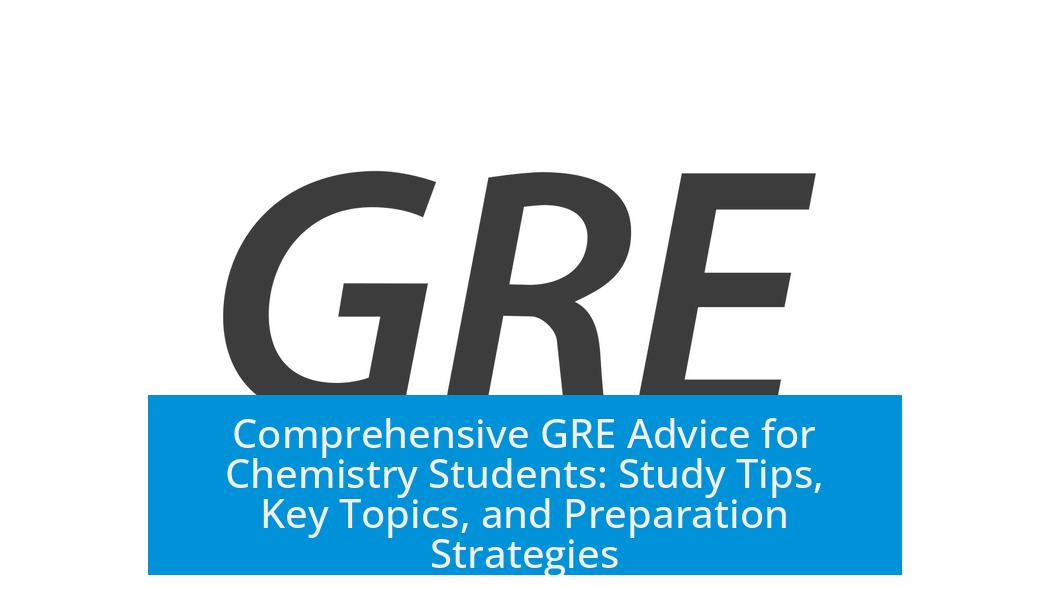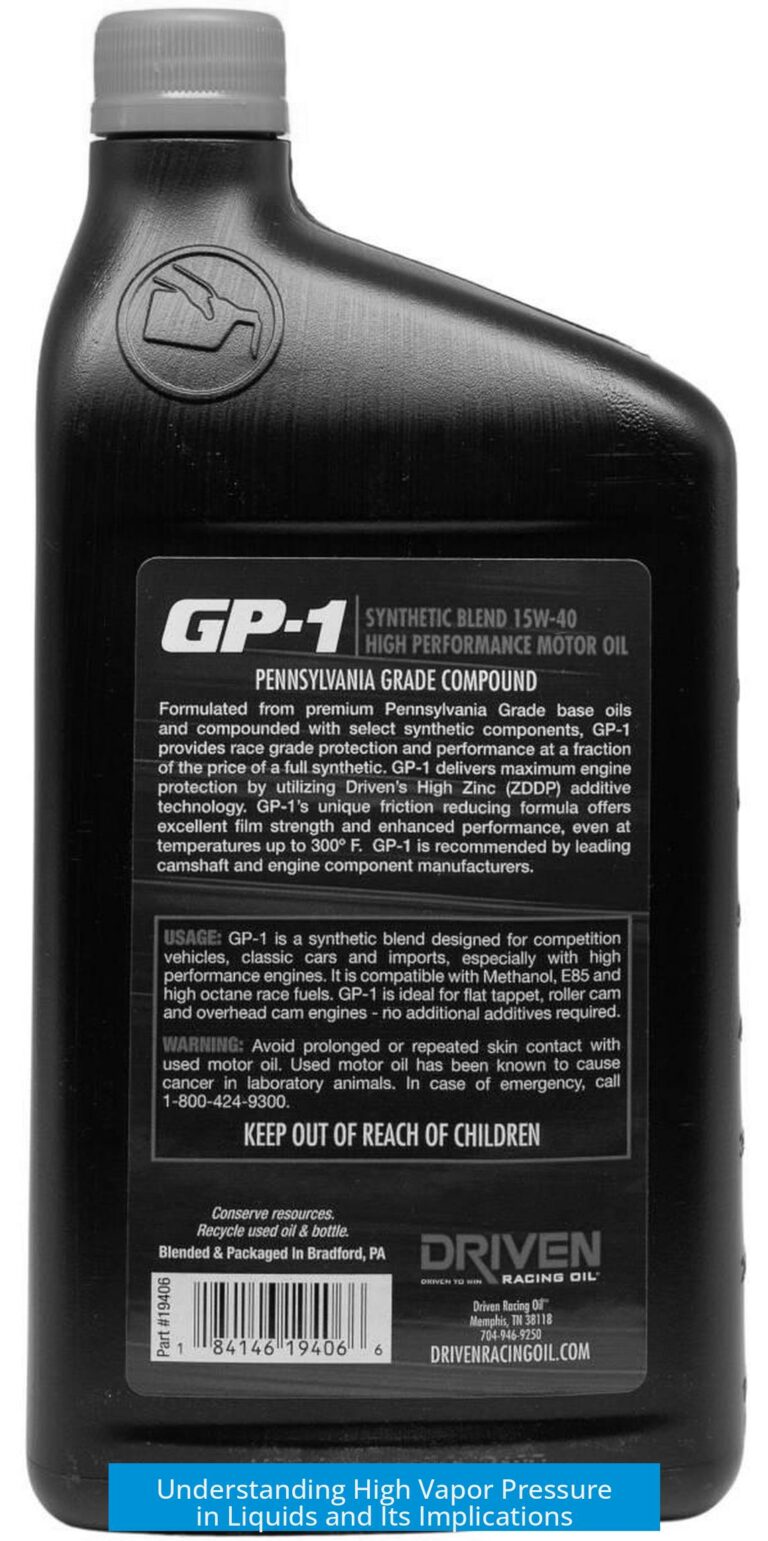Comprehensive GRE Advice for Chemistry Students

The GRE Chemistry Subject Test requires mastery of a broad range of chemical knowledge and skills. It is demanding and covers extensive topics such as titrations, buffers, redox reactions, analytical techniques, and statistical analysis. Preparation includes practicing with previous exams and focusing on key concepts. However, despite its challenge, the exam often serves as a baseline assessment, particularly significant for international and non-chemistry majors entering graduate programs. For U.S. chemistry undergraduates, GRE scores might carry less weight than research experience and recommendations.
Availability of GRE Chemistry Practice Materials
Practice resources are crucial for success on the GRE Chemistry Subject Test. Several batches of old GRE Chemistry exams and drill question sets are available. One user has compiled five past exams along with two additional drill question sets produced by ETS, totaling approximately seven exams. These materials are typically uploaded in PDF format for convenient access.
There have been concerns about recent legal restrictions, such as laws limiting the distribution of copyrighted educational materials via torrent engines. Consequently, timely access to these materials depends on the legal environment and distribution platform.
Key Chemistry Topics to Master
Successful performance on the GRE Chemistry test hinges on thorough understanding of multiple topic areas. Exam takers should concentrate on the following themes:
Titrations
- Ability to perform and interpret titrations involving strong acid-strong base, weak acid-strong base, weak base-strong acid, and polyprotic acid-base systems.
- Familiarity with EDTA titrations for metal chelation, including pH-dependent selectivity and use of masking agents.
- Skill in analyzing pH versus volume titrant graphs to identify reaction progress and equivalence points.
Buffers
- Competence with the Henderson-Hasselbalch equation for calculating and designing buffer solutions.
- Understanding buffer capacity and pH adjustments.
Redox and Electrochemistry
- Proficiency in balancing redox reactions.
- Knowledge of building electrovoltaic cells and calculating cell potentials.
Solubility and Lab Techniques
- Application of solubility rules to predict precipitate formation and dissolution.
- Understanding common laboratory procedures, volumetric glassware markings (TD vs TC), and operation of equipment such as pH meters.
Analytical Techniques
- Interpretation of gas chromatography (GC) and liquid chromatography (including column chromatography, high-performance liquid chromatography (HPLC), and thin-layer chromatography (TLC)) data.
- Understanding flame atomic emission spectroscopy, inductively coupled plasma spectroscopy, and graphite furnace atomic absorption.
- Grasping the fundamental principles behind these analytical instruments.
Spectrophotometry
- Using Beer’s Law to analyze solutions, particularly mixtures of compounds, for concentration estimates.
Statistics and Detection Limits
- Application of statistical analysis to lab results.
- Determining when measurements fall outside the limits of detection or quantification.
Recommended Textbook
To build a solid theoretical foundation, “Quantitative Chemical Analysis” by Daniel C. Harris is highly recommended. The book provides detailed explanations on analytical methods in chemistry and is known for clear, accessible writing. It covers many GRE-relevant topics such as titrations, buffers, spectrophotometry, and statistics.
Exam Difficulty and Relative Importance
The GRE Chemistry Subject Test is challenging, often considered one of the toughest exams a chemistry student will face. It spans all core areas covered during a degree, including organic, inorganic, physical, and analytical chemistry. Its difficulty is compounded for students balancing coursework, research responsibilities, and GRE preparation.
Despite its difficulty, the test varies in perceived importance based on applicant background and graduate program expectations. For international students or those entering chemistry graduate programs without a U.S.-style undergraduate education, the GRE Chemistry test helps standardize baseline knowledge.
Some U.S. professors and departments place limited emphasis on the test results, prioritizing research experience, publications, and recommendations instead. Anecdotal evidence suggests students have entered competitive graduate programs with percentile scores as low as the 26th percentile or below 30, highlighting that the GRE is often a supplementary hurdle.
Therefore, students should consider the exam in the context of overall graduate admissions. For American undergraduates, focusing on laboratory research, academic performance, and relationships with faculty may provide better returns on effort than maximizing GRE scores.
Exam Preparation Strategies
Preparation is key, especially for those seeking high GRE Chemistry scores. The following approaches are effective:
- Practice Previous Exams: Working through past exams and practice questions helps familiarize candidates with typical question types, difficulty, and content focus.
- Identify Content Patterns: Recognize that GRE chemistry exams vary by version, sometimes emphasizing organic chemistry and multi-step synthesis problems, other times leaning more on inorganic topics. However, all versions cover an integrated chemistry curriculum.
- Allocate Ample Study Time: A couple of months of focused preparation is advisable to build proficiency. Rushed or superficial study may be inadequate given the exam’s complexity.
- Select Reliable Study Guides: Not all preparatory books match the exam’s real difficulty. Some users report discrepancies between book practice test results and actual test percentiles. Seek materials reviewed positively by previous test-takers.
Balancing GRE with Research and Coursework
Many candidates find balancing GRE preparation with ongoing classes and research challenging. Prioritize commitments based on individual circumstances:
- If graduate programs do not heavily weigh GRE Chemistry scores, prioritize research, coursework grades, and building relationships with faculty.
- Use practice materials to maintain a functional grasp of tested subjects without exhaustive studying.
- For international or non-chemistry backgrounds, invest more time in preparatory study to meet baseline expectations.
This approach mitigates burnout and avoids compromising other critical academic components.
Miscellaneous GRE Advice
Understanding the GRE General Test format complements subject test preparation. The General GRE includes verbal, quantitative, and analytical writing sections but is distinct from the Chemistry Subject Test. Test-takers often find the General GRE manageable, especially for math and science majors. The Chemistry Subject remains significantly more specialized and challenging.
Students sometimes take the Chemistry GRE before formal courses such as analytical chemistry. While possible, this demands review of relevant topics independently.
Key Takeaways
- The GRE Chemistry Subject Test is comprehensive and covers a wide chemical knowledge spectrum including titrations, buffers, redox reactions, lab techniques, and analytical methods.
- Practice exams and reliable study guides are essential to familiarize with question types and exam difficulty.
- “Quantitative Chemical Analysis” by Harris is a highly recommended text for foundational study.
- The exam is difficult but often serves more to verify baseline knowledge, especially for international or non-traditional applicants.
- Many U.S. graduate programs emphasize research experience and recommendations more than GRE scores.
- Effective preparation requires months of dedicated study, but priorities should be balanced with research and coursework demands.
- Understanding the general GRE format assists overall graduate admissions readiness but differs from the subject-specific content of the Chemistry GRE.
What are the key chemistry topics to focus on for the GRE Chemistry exam?
Focus on titrations, buffers, redox reactions, solubility, lab techniques, and analytical methods like chromatography and spectrophotometry. Understanding lab equipment and statistics is also important.
How important is the Chemistry GRE for graduate school admissions?
The exam is usually a formality. Many American schools and professors don’t weigh it heavily. Research experience and recommendations often matter more than your score.
How should I prepare for the Chemistry GRE to score well?
Use multiple practice tests, including old GRE exams. Study broadly across chemistry topics and allow at least a couple of months for preparation to achieve a high percentile.
Is there a recommended textbook to study for the Chemistry GRE?
“Quantitative Chemical Analysis” by Harris is a good choice. It covers key concepts clearly and is often recommended by test takers.
Can I do well on the GRE Chemistry exam without extensive study?
Some students do well without much prep, especially science majors. However, the test is challenging, and practice improves performance most of the time.





Leave a Comment